We are delighted to share with you the exciting news, that an APCP member, has been awarded the CSP’s prestigious Fellowship award 2023, and it goes to…
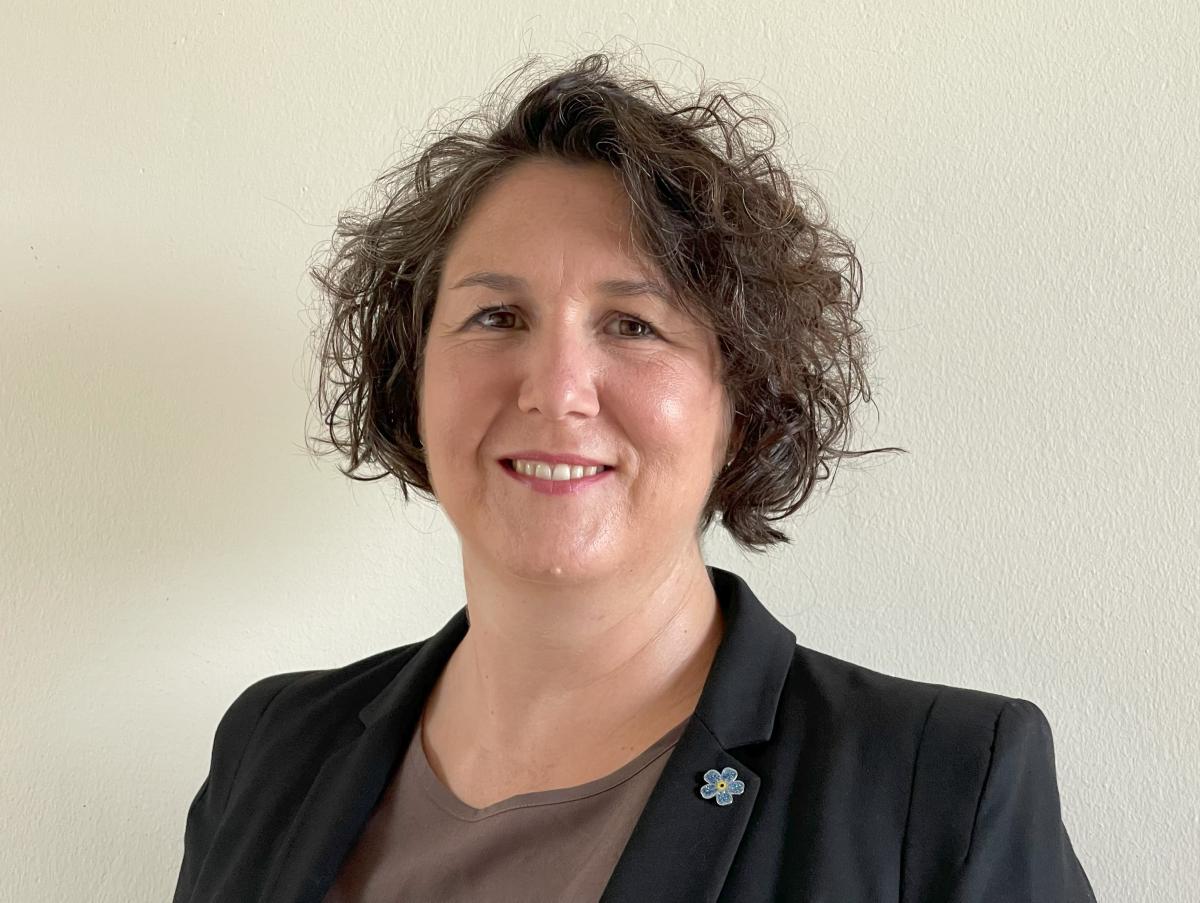
Fiona Beckerlegge, for outstanding and sustained commitment to international development work in advancing paediatric disability services.
Fiona has been both a CSP member and an APCP member for over 20 years, so I decided to reach out and to ascertain, what made our APCP overseas Ugandan member, so worthy of this award. And thankfully, Fiona agreed to be interviewed...
The background:
Fiona was born in York, UK and after completing her A Levels decided to travel before attending university. She spent 6 months in Tanzania, working with street children. Fiona had always wanted to work abroad and explore other aspects of the world, the desire to travel was embedded, it was just a matter of time before she combined this desire with her physiotherapy skills.
After Fiona graduated with a Bachelor of Science degree in Physiotherapy from the university of Brighton in 2000, she worked as a junior physiotherapist at Peterborough and Stamford Hospitals NHS Trusts; followed by 5 years at Newcastle Upon Tyne Hospital NHS Foundation Trust, as a Senior Paediatric Physiotherapist.
A rare opportunity:
Finally, the need to travel and work abroad came to the fore and in 2007, Fiona decided to work as a community paediatric physiotherapist for the Ministry of Health in Bermuda, setting up music and movement programmes, in pre-schools.
After 6 years in Bermuda, Fiona saw an advertisement for a volunteer to work for 3 – 6 months, with a family and their 3-year son in Uganda, with severe epilepsy, developmental delay, and microcephaly. With a passion for working in low-income settings and develop local resources and solutions; Fiona in 2013 arrived in Uganda, to see what she could do for this little boy. When she arrived, he could not crawl or walk and could not talk.
Sidney, is now 12 years old, can now walk and his speech is coming along, slowly but audible.
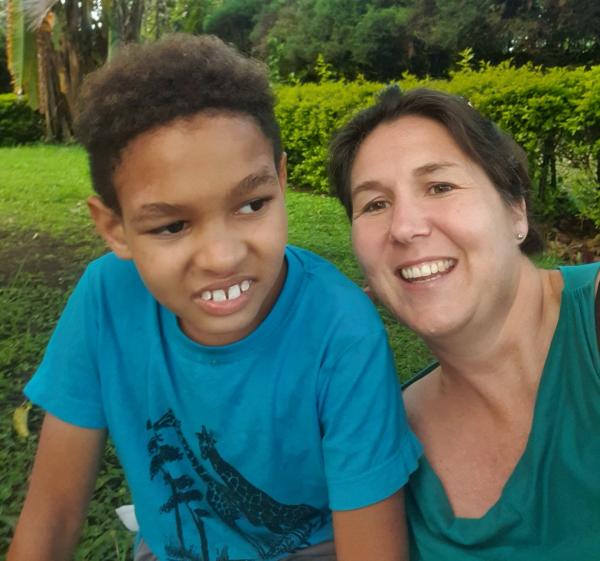
The need:
During Fiona’s time whilst living and helping the family with their son, and with over 10 years of paediatric experience behind her, it felt wrong not to help others locally. and so, Fiona volunteered at a local orphanage in the nearby town, which had several children with disabilities, in the hope she could make a difference. At the time there were 8 children in the babies' home, many of them had never had rehabilitation; and many of the mothers who were looking after them, had no knowledge of disabilities. There was a need for Fiona to help them understand disabilities, positioning, and engagement, tribes started to talk, and many families would just turn up at the gates with their children, looking for help…
Fiona knew that the benefits of reaching out further would outweigh any uncertainty from the locals. So, with the regional referral hospital, which is responsible for 8 districts, covering c1000 km2 of rural western Uganda, (386 square miles), with only 2 general physiotherapists covering In - and - Outpatient responses, and so there was an immediate need to support and help those families and local tribes.
The centre:
In 2014 both Fiona, and the family she worked for (British dad and Ugandan mum), jointly put funds together, and set up a small (not for profit) organisation to help a few other children in the local town of Fort Portal. The Kyaninga Child Development Centre (KCDC) provides multisectoral and holistic approach, that includes healthcare, rehabilitation, education and social inclusion.
Fiona commented that: 'Unfortunately, there is an awful lot of exclusion and shame having a child with disability, with a lot of blame on the mothers, leading to many families hiding their children'. She has encountered a lot of misconceptions and found many mothers of disabled children were subject to cultural stigmas: for example, the belief that a the child's disability was due to - a curse or the presence of a demon; or because the mother had been disrespectful of their mother-in-law during pregnancy or were because they were second wives; etc.
How have you overcome such beliefs?
We needed to reach the population and the many families living in remote areas. Therefore, much of the work from the centre is around family strengthening, acceptance of their cultural beliefs and offering care, but also looking at the birth journey pre & post-natal, and providing the families with an explanation as to why a child has disability and the paediatric physio is the “add on" – a totally holistic approach.
Kyaninga Child Development Centre relies on expert parents who they have trained, so that they can run community groups and partner with local health centres. Every month the centre runs 25 clinics and takes their whole team to the local health centres, ensuring they are reaching those communities, within a 5 km distance for mothers and families to walk and reach them, sometimes treating them under a tree or in a doorway. The accessibility of this care, within a local health centre, encourages other families to see the good and positive work the paediatric physios are providing, which in turn, takes away the stigma of a child with disability and inherent beliefs. In 2015, the average age of referral dropped from age 7 year olds to age 2; and the centre continues to make good progress in getting children referred and into rehab. Fifty per cent of referrals are children under 1 years of age.
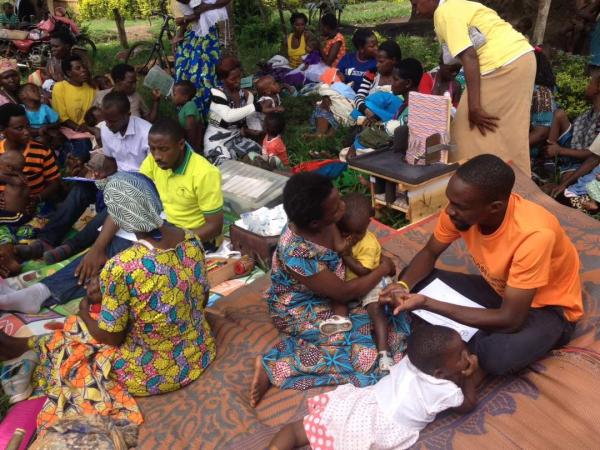
After 10 years, where are you at and where is KCDC now in 2023?
I am currently the co-founder and executive director of Kyaninga Child Development Centre, where now I predominately train and provide, professional development programmes for the Ugandan staff, rather than working directly with children. The team consists of 5 x physios, 5 x OT’s, 4 speech therapists, social workers, orthopaedic officers, support and admin staff from different tribes. Enabling cross cultural and language differences to be shared and overcome; in total I manage 85 staff including 4 non-Ugandans; along with grant & report writing to enable support from charitable foundations.
My team and I, instil a holistic approach to our centre. We have trained 13 parents to run the centre’s parent support group; another 5 parents run the business training programme; with 41 indigenous languages to contend with including 33 dialects, it hasn’t always been easy, especially with such high levels of illiteracy amongst many families and tribes. Secondary education and universities are all in English, which can add further to the problem and we therefore, also created a professional development programme and a school...
Professional development programme for teachers and KCDC School:
In Ugandan schools, the average class number is around 100, with one teacher and zero resources. Therefore, children with disabilities and additional needs, are at a disadvantage, with many not attending school at all.
The KCDC created a two year professional development programme, for local teachers to learn a more inclusive child-led learning approach. It includes, 4 modules and 6 days of workshops, with mentorship throughout those two years: leading to shared knowledge with the rest of the school with ongoing support from KCDC. They currently have 66 teachers on the two-year programme, enabling KCDC to recommend the most suitable school for a child’s needs. This has led to an increase in enrolment and retention of children with disabilities. (Funded by International Family Foundations, 3 x USA and 1 x South African).
KCDC School:
KCDC also has their own special needs school, with special needs teachers working alongside their therapists, to ensure a child is able and ready for school. There are currently 59 students, 31 learners and 28 complex needs. Working with the Ministry of Education and Sports for future certification.
Other barriers to education and inclusion:
KDCD has struggled for many years to acquire suitable mobility aids which are robust enough for the African terrain and environment, to enable children to get to and from centres and schools. They are very grateful for the fantastic support from organisations, such as Physionet.
Sidney's father and KCDC co-founder, Steve has also been working over the past 3 years with a loca team on project to design and develop wheelchairs made from bamboo and bicycle parts. The design is currently undergoing vigorous R & D tests with an advisory group at the University of Pittsburgh, to ensure the chair meets ISO Standards. He hopes that this project will further reduce the barriers to education and inclusion.
And Finally ...
If that wasn't enough, Fiona is returning to the UK in January for her graduation, completing an online Master of Science Degree: Global Public Health, from Queen Mary's University - London.
If this interview has inspired you in anyway, the KCDC are always looking for professionals and students to support and work alongside their therapists, to share knowledge and ideas. If you would like to know more, please reach out to Fiona Beckerlegge - fiona@kyaningacdc.org
Interviewer: ally@apcp.org.uk (permissions have been granted by both parents and Kyaninga Child Development Centre).
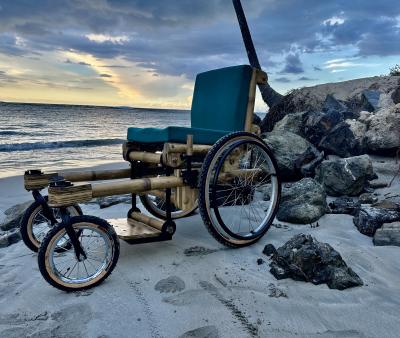
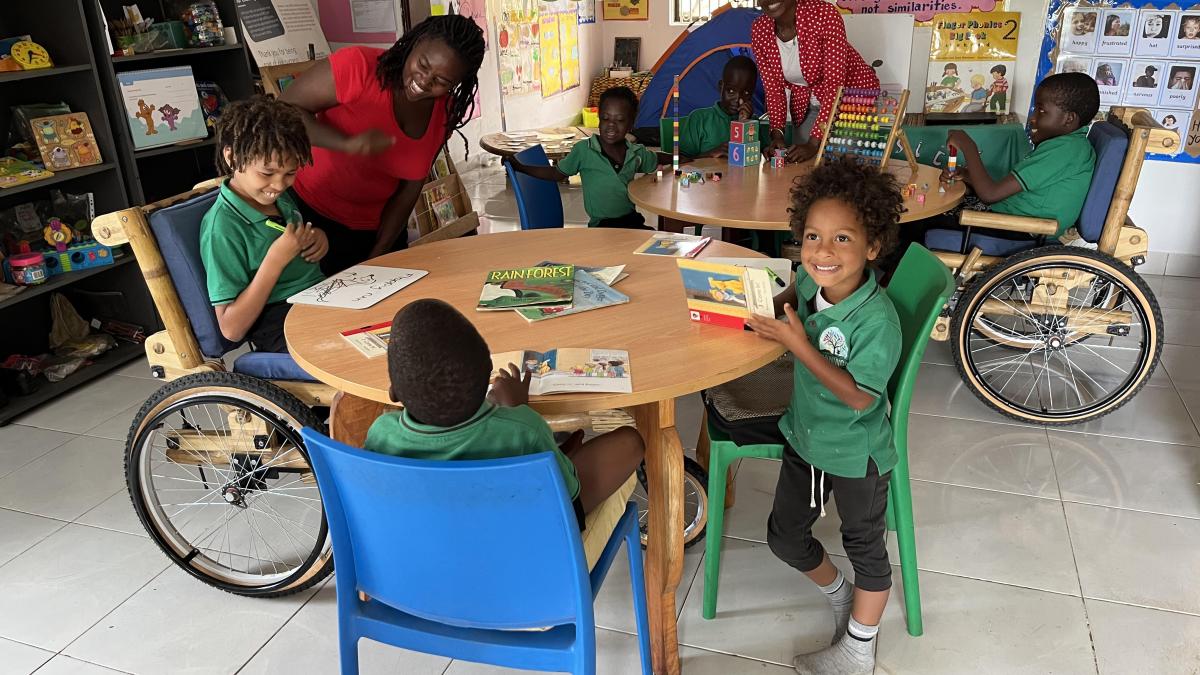
Number of subscribers: 2
